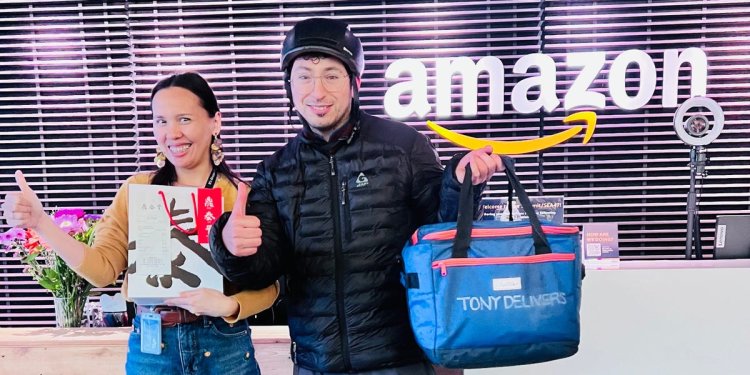I left apps like Uber Eats to start my own delivery business. I love connecting with people and not having to rush around
Tony Illes started "Tony Delivers" to offer more personal food deliveries in downtown Seattle after working for Uber Eats.

Tony Illes
- Tony Illes, 30, used to deliver food via Uber Eats and DoorDash in Seattle.
- But in January, he started "Tony Delivers" and brings people their food using his own system.
- Working as "Tony Delivers" has allowed him to interact with more people than on gig apps, he said.
This as-told-to essay is based on a conversation with Tony Illes, a delivery worker in Seattle. In January, Illes started "Tony Delivers," a service that he runs to deliver food in downtown Seattle during the lunch and dinner rushes. Customers order their food from a restaurant for takeout, then text Tony their order for delivery. They can pay him using cash, credit cards, Google Pay or Apple Pay.
Business Insider has verified his identity. The story has been edited for length and clarity.
I was talking with one of my buddies about working for the delivery apps, and he was like "What if you just cut out the middleman?" I had been sick for a couple weeks and I just came back to work. I sat there and didn't get an order for six hours. I was like, you know what? It's time to make an adjustment. I literally did it as fast as I could and began printing out horrible QR codes.
The hardest challenge to solve is the connection between people. With the apps, what ends up happening is that in these urban areas, it's high turnover, high demand, and it makes it hard to be relatable and personable. You're on a business call, and you're like "I need my food." Tony Illes
Most people just need a small human connection to spark that social fabric that we already have naturally. Instead of it being B2C, or "business-to-consumer," I'm pointing to P2P, which is "person-to-person." I think there will be more of an empathy economy, or an experience economy, where experience matters to the person, and that's going to come through human connection.
When someone texts me an order, I have my algorithm right up here in my head. I have a good understanding of what typical wait times are, and I give them wait times usually via voice message. I feel like that makes it more personable. I'm not in the business of customer service, I'm into the philosophy of person-to-person interaction.
In the first month, my earnings have been about the same as on the big apps.
I've never seen a single person that I delivered to previously with the apps run down the stairs and say, "Tony, thank you so much." But here at Tony Delivers, it's happened multiple times.
That's the hard thing for a lot of people. Often, gig delivery work has no growth. There's no one to talk to. It's dehumanizing.
It puts us in competition. We're racing. We believe that if I get this order done at six minutes versus eight, we'll get another delivery, which then puts you in this weird, unsafe place of racing your bike or your car through red lights. It's stupid. It doesn't make any sense.
There's so many other ways that you could solve for this problem that would make it much more financially stable and would make it so much safer and better for everyone.
Maybe I represent a shift in that marketplace, so that way everyone in the gig economy can at least think about some of these things.
Do you deliver food, groceries, or other stuff as a gig worker and have a story idea to share? Reach out to this reporter at [email protected]
What's Your Reaction?




















